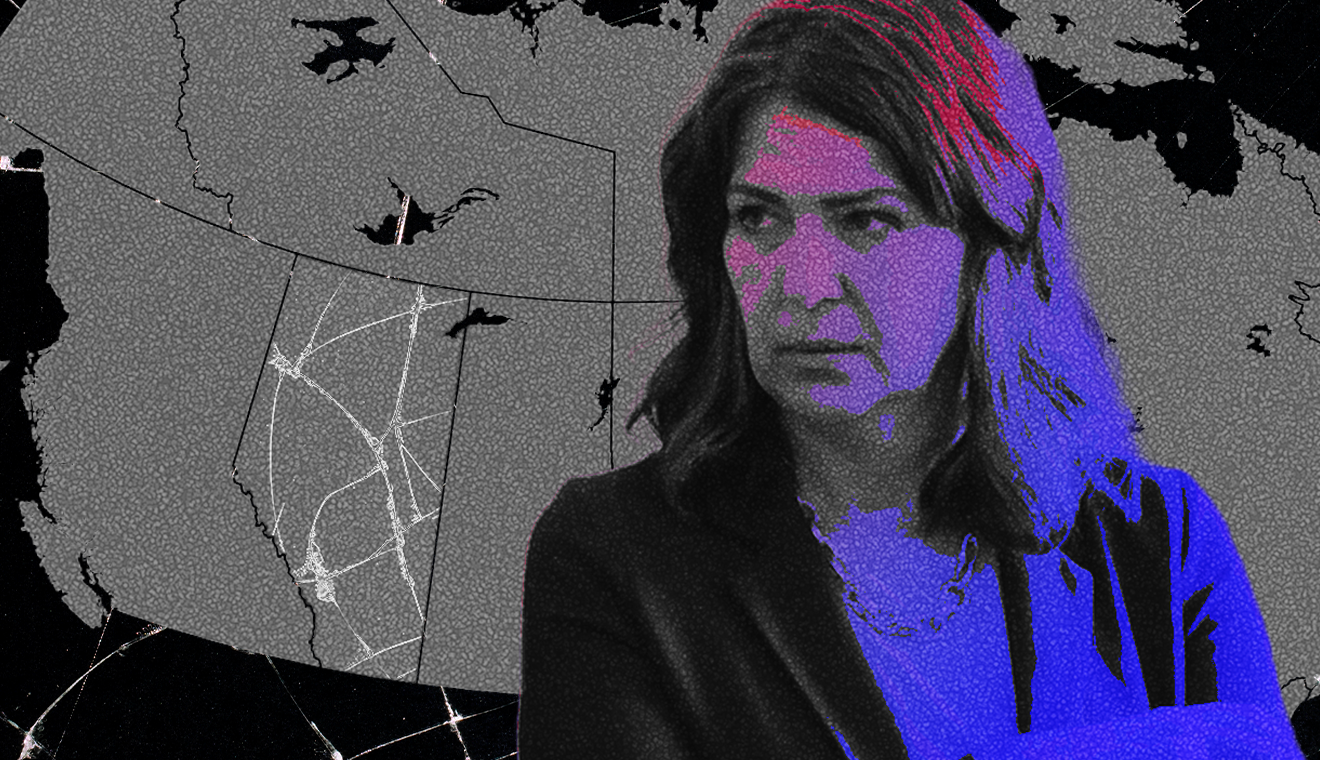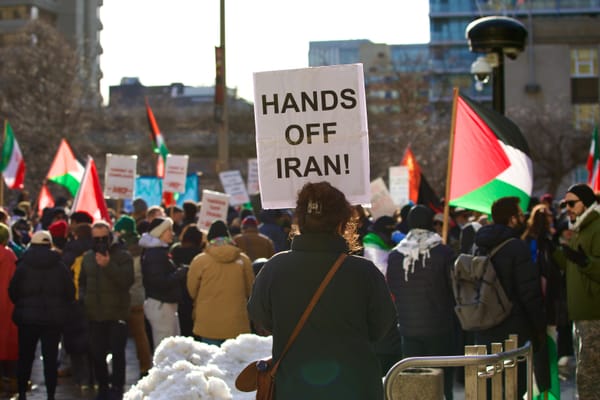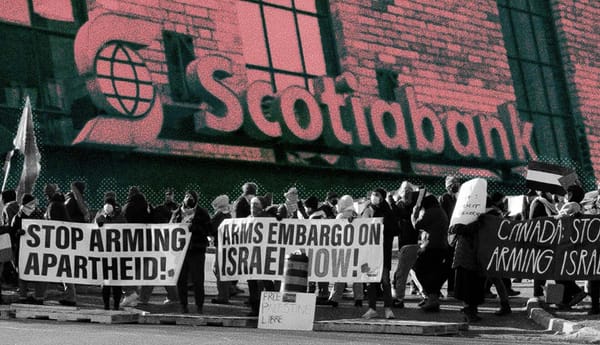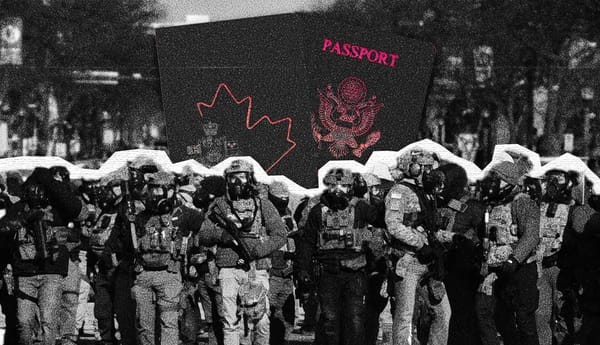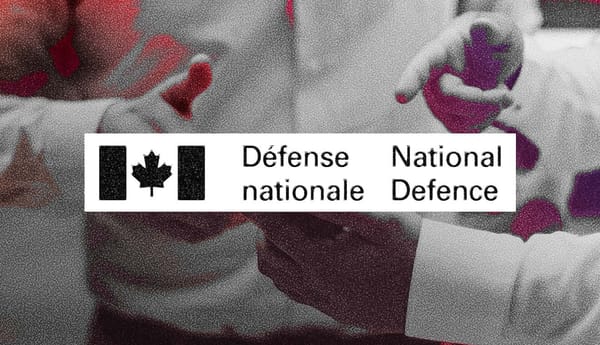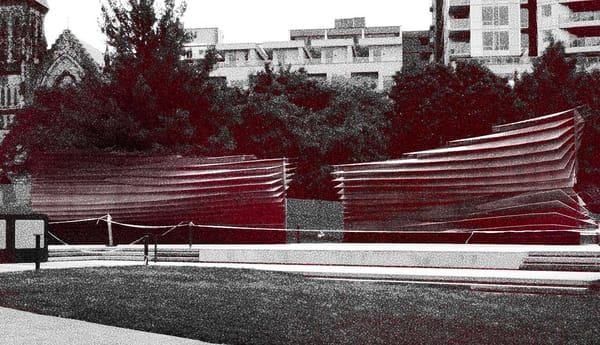Western alienation and Alberta separatism are back in the news. After the Liberal Party snatched victory from the jaws of defeat in last month’s federal election, a small but vocal minority in the heavily Conservative-voting Prairie provinces, particularly Alberta, are calling to break up Confederation.
They are getting a helping hand from some of the highest rungs of power. Alberta Premier Danielle Smith recently made it easier for separatists to make a referendum on the issue a reality, drastically lowering the number of signatures required and increasing the time-limit in which proponents must collect those signatures in order to initiate such a vote.
Smith insists she does not support separation, but admitted that part of her reasoning for throwing a lifeline to the separatist cause is to stave off the creation of a new political party, which would likely split the right-wing vote and potentially pave the way for another Alberta NDP government.
A separatist party recently claimed that 11 United Conservative Party MLAs support a binding independence referendum. And Smith has said she would respect the outcome of any such vote.
Indigenous leaders, meanwhile, strongly denounced Smith’s talk of separation, with chiefs from treaties 6, 7 and 8 noting that their Nations’ treaties with the Crown predate the province of Alberta. Piikani Chief Troy Knowlton said: “We are not going anywhere. If you have problems with First Nations, you can leave.”
But how serious is the threat of Alberta separatism really, and what is Smith’s true motivation for bringing it into mainstream political conversations?
Polling indicates that public support for the idea remains relatively low. An Angus Reid survey published earlier this month found 52 per cent of Albertans would “definitely” vote to remain in Canada, along with another 8 per cent who lean towards that position. Only 19 per cent would “definitely” vote to separate.
The Maple recently issued a call out for residents of Alberta and other Western provinces to share their thoughts on Smith’s recent rhetoric and the separatist cause in general.
Our inbox was flooded with responses, and we interviewed a range of those who wrote to us.
Here’s what we heard: While the issue is sometimes talked about as “Western” separatism, that is a misnomer as the political project currently only exists in any real capacity in Alberta and to a lesser extent in Saskatchewan (and even in those provinces, it remains a fringe idea).
Several residents of British Columbia stressed that despite attempts by some independent MLAs to make it an issue, it is not talked about in any serious way there.
In Alberta, residents said, Smith is primarily using the issue as a distraction from more pressing concerns that the province faces — particularly in regards to healthcare privatization — and to paper over cracks in her political base. But, they noted, her recent moves to provide oxygen for the separatist cause risk taking the province down a dangerous path.
Almost everyone we spoke to noted the United Kingdom’s “Brexit” referendum in 2016 as an example of a vote that was initially held by a conservative government in hopes of tempering down a fringe right-wing cause, only to yield a result that many thought was unimaginable.
Almost everyone we spoke to agreed that while Alberta and other Western provinces have distinct political cultures, the separatist movement lacks any grounding in a national identity or culture that is qualitatively different from other provinces.
Residents stressed that the main driving force behind the separatist cause is the oil and gas industry and its associated grievances with the Liberal government. They also pointed to the separatist movement’s apparent ignorance of or unwillingness to respect Indigenous land rights.
Many – but not everyone — said they could not imagine staying in their province if it separated from Canada.
In total, we spoke to eight residents of Alberta and Saskatchewan, and two political scientists. The residents were aged between 26 and 74, and worked in several different sectors: Oil and gas, potash, education and the nonprofit sector. Some were born and raised in the province they currently reside in, while others moved either from elsewhere in Canada or another country.
In what follows, we summarize some of the key points they raised.
‘Smokescreens’
Alberta residents overwhelmingly expressed their view that Smith is using the spectre of separatism in order to distract from more serious issues that the province faces, particularly problems with Alberta’s health care system and the UCP government’s alleged corruption scandals.
In particular, some residents highlighted the “CorruptCare” scandal, in which the UCP government is alleged to have pressured Alberta Health Services into accepting contracts to operate chartered surgical facilities.
Josh Connauton, a 33 year-old employee at the University of Alberta and life-long Edmontonian, said: “There’s been absolute failure and decimation of public services. [Smith] just kind of used this as a distraction in the biggest way possible, to also be able to motivate her base, and keep them engaged. I think that everything she’s trying to do is a bunch of smoke screens.”
Russell Copley, a 28 year-old employee at a health-oriented nonprofit in Calgary who moved to Alberta from British Columbia in 2019, said: “It’s a distraction from some of the very credible issues that are at play in Alberta right now. I’m thinking mainly about the issue of Alberta health care and how the reorganization of the healthcare system is going or not going.”
“When I think about the people that access services where I work, I think that what needs to be focused on is food in bellies and medicine in hand and access to housing that is safe and dignified.”
Anthony Bennett, a 74 year-old retiree who worked in land surveying, NDP member and Cochrane resident said Smith is using “old animosity” for political leverage, and that her separatist rhetoric amounts to a “stunt.”
He added that she is employing a strategy long used by Conservative premiers who, in his view, seek to deflect responsibility for problems they themselves created. Bennett highlighted former premier Ralph Klein as an example.
“Every time Ralph Klein got into a scandal, he’d start talking about the National Energy Plan, and people just sat around, going, what, why? And then he’d be off, and he’d be out from under a scandal and move on to the next one.”
Pierre Elliot Trudeau’s National Energy Program (NEP) — which in the early 1980s sought to establish Canadian energy independence and implement price controls — has long been a flash point in separatist narratives that allege Ottawa does not allow Alberta to maximize benefits from its oil.
Gemma Iwanciwski, a 43 year-old born-and-raised Albertan who works in the oil and gas sector, echoed the view that separatism is invoked to deflect from other issues. “It’s a very Trumpian playbook to be like, let’s do a whole bunch of stuff here that’s flashy [...] while you’re doing something else in the corner that you don’t want people to see.”
Separatism’s Roots
Separatism is not a new phenomenon, particularly in Alberta.
Daniel Westlake, a political science professor at the University of Saskatchewan stressed it is important to distinguish between “Western alienation” and separatism. Whereas the latter exists on the fringes and has lacked any long-term momentum, the former, which argues Western Canada is treated unfairly by Ottawa, is a broadly held view.
Western alienation, said Westlake, was represented by political movements like the left-leaning Progressive Party in the 1920s, and later by the right-wing Reform Party in the late 1980s and 1990s. Reform’s slogan, “the West wants in,” did not reflect a wish to separate from Canada, but rather for what they saw as better Western representation in Canadian institutions, Westlake explained.
Nonetheless, during the recent federal election, ex-Reform leader Preston Manning wrote an op-ed for the Globe and Mail arguing that Western Canadian political leaders should “provide a mechanism for recognizing and addressing the growing support for Western secession in an orderly and democratic manner.”
Reform, which was ultimately succeeded by the Canadian Alliance which merged into the modern-day Conservative Party of Canada in 2003, enjoyed electoral success, forming the official Opposition in 1997. Separatist parties never achieved any such relevance in Canadian politics.
During the 1970s amid opposition to the NEP, for example, it was commonplace to hear political slogans decrying the “Eastern bastards,” but separatist parties never converted that anger into any sustained breakthroughs.
Roger Epp, a professor emeritus of political science at the University of Alberta, remembers those days well. A young journalist at the time, he recalled watching energy ministers from Ottawa and Alberta clink glasses on the balcony of Government House after concluding intense negotiations over the NEP. The backlash to the NEP, he recalled, “was not pretty.”
While the separatist Western Canada Concept party never became a major political force, it was, Epp noted, able to win a by-election in 1982, thanks in part to anger over the NEP and with support from what he described as “small players” in the oil and gas industry.
“They’re the people who are rooted here, who are not part of a kind of corporate oil patch that moves easily between Houston and Calgary and the [United Arab] Emirates,” Epp explained.
Today’s separatism, he said, also reflects the growing complexity of the modern conservative base. Smith’s predecessor, Jason Kenney, was deposed thanks to organizing by the far-right in his own party. The lesson Smith has taken from that, Epp said, is that she cannot allow that far-right element to stay unhappy for too long.
Westlake noted that since the Alberta NDP won the 2015 provincial election, in part due to a divided right-wing vote, conservatives have been paranoid about vote splitting and are more ready than ever to give space to extreme factions, including separatists.
“It’s a really tricky game to play, and I think perhaps it speaks more to how fragmented the right in Alberta is, and how nervous the right is about that fragmentation and how susceptible it is to be extreme,” said Westlake.
However, in contrast with Quebec nationalism, separatists in Western Canada lack a shared sense of national identity with which to work. Yves François Blanchet, leader of the Bloc Québécois, recently quipped that he was unsure if loving oil counts as a national identity.
“When you look at Quebec, it isn’t just about policy. It’s about identity,” Westlake said. “If you’re a Western separatist, you’re obviously going to be alienated from the rest of the country, but I don’t think the reverse follows.”
As well, Epp said, neither separatist projects nor Smith has appeared to have given any serious thought to Indigenous land rights. “The assumption that you can just take those Indigenous people with you into some independent state, like they were pieces of furniture, it’s not going to happen.”
The view that Alberta lacks a national identity was shared by several of the residents interviewed by The Maple.
Iwanciwski noted that even within Alberta, there are important regional differences, and that while Alberta has some cultural distinctions that differentiates it from other parts of Canada, that is true of every province.
Bennett said: “There are a couple of sort of mythic themes that run through the idea that the ranchers built the West, the ‘rugged individual.’ All of that nonsense is absolutely untrue.”
Westlake also noted that Alberta is not anywhere near as ideologically as homogeneous as some blue-coloured federal election maps might suggest.
“Edmonton and Calgary are not the kind of centers of hard-right thought and hard-right political opinion that sometimes we think about in terms of Alberta,” he noted. “You have these views kind of spread across rural Alberta and rural Saskatchewan, but in neither case are they fully representative of the province.”
In the recent federal election, Calgary voted for one Liberal MP, while Edmonton voted for one Liberal and one NDP MP. Provincially, those two cities are the main regions where support for the provincial NDP is highest.
According to polling, 97 per cent of Alberta NDP voters oppose or lean towards opposing separation from Canada, compared to a majority of UCP voters who favour separating.
How Seriously Should We Take It?
Residents told The Maple that while the separatist project is not treated seriously in their day-to-day conversations, the spectre of Brexit looms large in the backs of their minds.
Connauton said: “Folks are worried about this turning into kind of a Brexit situation, where folks didn’t necessarily take it seriously enough, and then obviously a very well organized, coordinated campaign helped to lead things in a certain way.”
Rosie Costen, a 26 year-old employee at the University of Calgary who moved to Alberta from the United Kingdom as a child, said she found similarities between the separatist Alberta Prosperity Project’s proposed referendum question eerily reminiscent of the U.K.’s referendum on European Union membership in 2016.
She also pointed out similarities between Smith’s claimed rationale for allowing an Alberta separation referendum and former British prime minister David Cameron’s reasoning for the U.K. vote. “Some of the things that Smith has said about [...] ‘we have to let these people get this out of their system,’ [...] is I feel a lot of what I heard from the Tories who were in power at the time in the U.K.”
Fifty-two per cent voted to leave the EU, and Cameron, who had tied his fortunes to the remain side, was forced to resign.
Several of the residents The Maple interviewed pointed to elements of the oil and gas industry as driving narratives that fuel animosity towards Ottawa and, in turn, separatist rhetoric.
The sector has been a point of focus in Smith’s recent demands from Prime Minister Mark Carney, which include unfettered access to build pipelines, and an end to industrial greenhouse gas emissions caps and the B.C. oil tanker ban.
Some residents spoke specifically to how the oil and gas industry was ingrained in their sense of identity while growing up.
Iwanciwski, who works in the sector, said: “My family comes from oil and gas. I’m not as privileged as they are, but my family comes from it. And I have been told, ‘Well, remember, this is your bread and butter.’ I mean, like, great, but that’s not my identity. My identity isn’t oil and gas.”
Costen, who went to school in Calgary, recalled: “I finished high school in 2016 and by that point, like half of my classmates’ dads had lost their jobs in oil and gas and stuff, and we were still being pushed to go into oil and gas.”
Victor, a tradesman who works in the oil patch and who asked that The Maple not use his real name or details about his job over concerns about retribution from his employer, said that in his place of work, the question of separatism is mostly not discussed, but that he has heard some co-workers speak positively about it.
“I mentioned it to an operator [...] the other day, and she thought it was a great idea,” said Victor, adding that he is particularly concerned about how a separatist Alberta might be vulnerable to annexation by the United States, given President Donald Trump’s repeated calls to make Canada the 51st American state.
“I am actually seriously concerned about those lunatics rolling over Canada, and like people think when I mentioned that, ‘oh, he’s just fucking around.’ And like, they don’t believe it can happen here.”
Copley admitted that given the Liberal government’s record of supporting the oil and gas industry, including its purchasing of the Trans Mountain Pipeline Expansion project in 2018, he has trouble understanding why there is so much animosity among some Albertans in regards to that issue: “What is it that still makes these people feel so alienated and so disregarded?”
Other critics have similarly disputed the narrative that Ottawa has hurt Alberta’s oil and gas industry as a decades-old “myth.”
Copley added that the importance of extractive industries in Alberta is not unique. In British Columbia, which he pointed out only narrowly voted for an NDP government over the Conservatives in last year’s provincial election, such industries are a major part of political conversations as well.
“Every place has industry; the industry politics of B.C. are around forestry and mining, for example, and fishing of course,” he said.
“There isn’t a nation within a nation [in Alberta].”
But for Chantel Coburn, a 34 year-old engineer working in Saskatchewan’s potash industry, what she sees as the federal government’s lack of a plan for a transition away from fossil fuels creates a sense of being under-appreciated among some workers in those sectors.
“I think when the federal government makes statements about phasing out oil and gas, that directly affects a lot of people’s livelihoods and with no plan for economic rejuvenation of the West or anything,” said Coburn.
Would You Stay?
Few of the residents we spoke to saw separation as a realistic or imminent risk. That was particularly true for those we interviewed in Saskatchewan. For example, Mathew Derworiz, a 34 year-old municipal worker living in Prince Albert, described the few instances of separatist rhetoric he has recently encountered there as little more than partisan “bellyaching.”
“It happens every time we don’t elect a Conservative government. It’s nothing new, and it’s not indicative of anything bigger. It’s just people don’t want the Liberals to win,” Derworiz said.
Most of those we interviewed, however, said they could not imagine sticking around if their province was to separate. That includes some residents who were born and raised in Alberta.
Connauton said: “I have zero, absolutely zero, interest in living in a separate country. If that should happen for whatever reason, then I would absolutely get out of dodge as quickly as I could.”
Iwanciwski said: “We wouldn’t stay in Alberta, because we’re not the type of people they want. I’m a woman who isn’t a ‘trad wife,’ who isn’t focused on the heavy Christian values. I believe in women’s reproductive rights. I believe in LGBTQ+ rights. I believe in all of that stuff. I believe in diversity, equity and inclusion. That is not what they’re looking for.”
Victor, the oil patch worker, said: “Part of me thinks I should stay and organize and fight, but yeah, I just, I don’t know what to do.”


